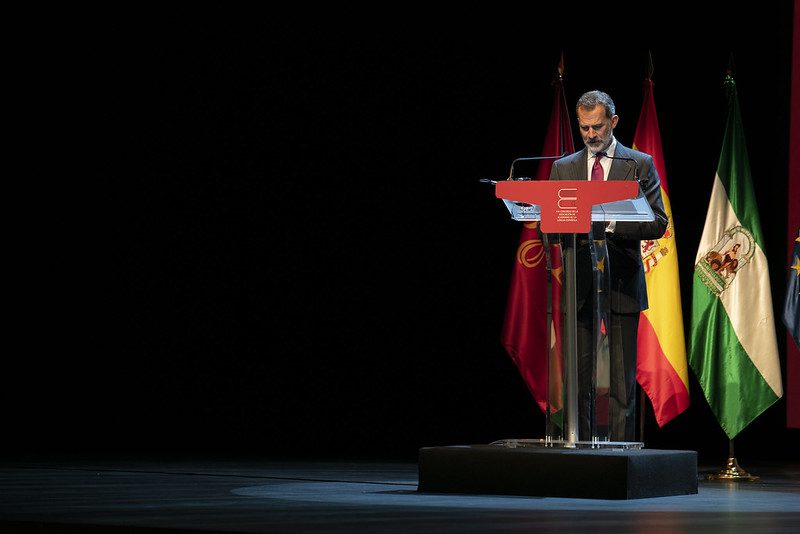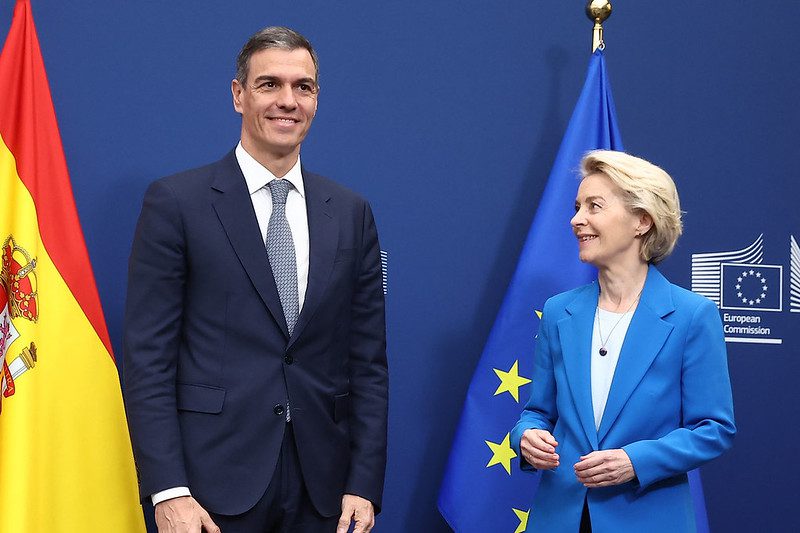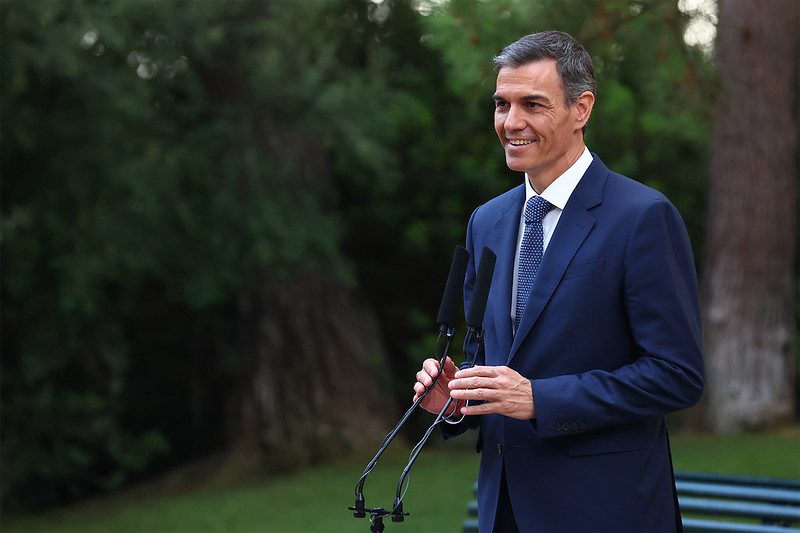Spain’s decision to announce nine measures “to stop the genocide in Gaza” marks a clear turning point in European diplomacy in the Israeli-Palestinian context. Madrid’s new sanctions against Israel signal an ambition to reshape Europe’s diplomatic principles and redefine how ethical concerns influence foreign policy decisions.
Observers were surprised not just by the measures themselves, but by the language used to present them. Prime Minister Pedro Sánchez and his government used the word “genocide” in official communications, and Madrid moved swiftly: an arms embargo, bans on certain Israel-bound military shipments through Spanish ports and airspace, restrictions on entry for people Spain says have “participated directly” in the alleged crimes, and the recall of Spain’s ambassador to Israel. These are political acts with legal and economic consequences, and they were presented with the force of moral urgency.
That urgency was amplified by a rare intervention from King Felipe VI. Speaking during a state visit to Egypt, the monarch denounced the “unspeakable suffering” of hundreds of thousands of Gazans and called the humanitarian situation “unbearable.” For a constitutional monarch who typically avoids partisan language, the tone is notable. It signals not only sympathy for victims but a broader national consensus in Spain that humanitarian thresholds have been crossed.
How does royal commentary matter in practice? Monarchs in parliamentary democracies traditionally serve as unifying figures above politics. When a king uses unusually direct language on a foreign policy crisis, it reshapes domestic political dynamics. It gives the government political cover to act, tightens expectations on opposition parties and makes it harder for diplomats to revert to strictly transactional language.

Image: Felipe VI, Rey de España / King of Spain – Real Academia Espanola
While the Spanish Government’s sanctions are a clear nod to other European nations to follow suit, the statements from King Felipe VI may serve, in a politically savvy move, to strengthen fellow European monarchs’ resolve to do the same.
Spain’s actions are also designed to exert pressure without immediate military confrontation. The permanent arms embargo, that the government seeks to legislate, formalises existing restrictions and closes regulatory gaps. Bans on shipments and the use of ports and airspace will disrupt logistical routes for Israeli defence suppliers and for private contractors that rely on European transport corridors. The short-term effect is political signalling; the medium-term effect may be supply-chain realignment.
There will be economic consequences for Spain as well. Bilateral trade is not insignificant. Spain’s exports to Israel were roughly €1.79 billion in 2024, and the European Union’s total trade with Israel was about €42.6 billion the same year. Sanctions that affect ports, air routes, or specific sectors will impose costs on Spanish exporters and importers, raise insurance and rerouting expenses, and could hit Spanish logistics firms and ports exposed to Israel-bound commerce. Those are manageable costs for a single country, but they scale up if other EU members follow.
Politically, Madrid’s stance is designed to do two things: first, to force the issue higher on the diplomatic agenda; second, to prod allies into collective action. Spain’s decision was shaped by international findings. A United Nations commission of inquiry recently concluded that acts in Gaza meet elements of the definition of genocide, shaping the legal and moral basis for Madrid’s measures. Israel rejects those findings and is contesting legal claims at international courts. Spain’s move therefore sits at the intersection of law, politics and public opinion.
The big question is whether Spain’s example will catalyse a wider European shift. There are signs it might. Brussels is considering tighter sanctions on trade and on individuals connected to alleged abuses, and some European capitals have already signalled discomfort with the status quo. But unanimity in the European Union is hard to achieve. A single veto could blunt collective action, while divided responses would leave Spain politically exposed and economically vulnerable.

Image: Prime Minister Pedro Sánchez receives the President of the EU Commission, Ursula von der Leyen – La Moncloa
Yet the momentum matters. When a major EU member reframes the debate in moral and legal terms, it changes the dynamic. It makes the policy costs of inaction higher for those who would otherwise remain passive. It also expands the scope for humanitarian diplomacy, sanctions and targeted economic measures.
Spain’s gamble is both moral and strategic. It rests on a set of facts attributed to international bodies and to the Spanish government, and on a calculation that political pressure will produce either changes in conduct or meaningful legal reckonings.
Whatever the immediate fallout, one thing is clear: the tide in European public life is shifting. What had been, for many years, a default of diplomatic restraint is being challenged by a combination of legal findings, public protest and formal state action. For Israel, the consequence may be a narrowing of diplomatic room for manoeuvre in Europe; for Spain, the result is a choice between leading a new European front on human rights or standing increasingly isolated if others refuse to follow.
Spain has chosen to push. Europe must now decide whether it will chart a new course or remain anchored to the past. The direction of travel matters: the diplomatic landscape is changing, and with it, the costs of doing nothing.
Featured Image via La Moncloa




